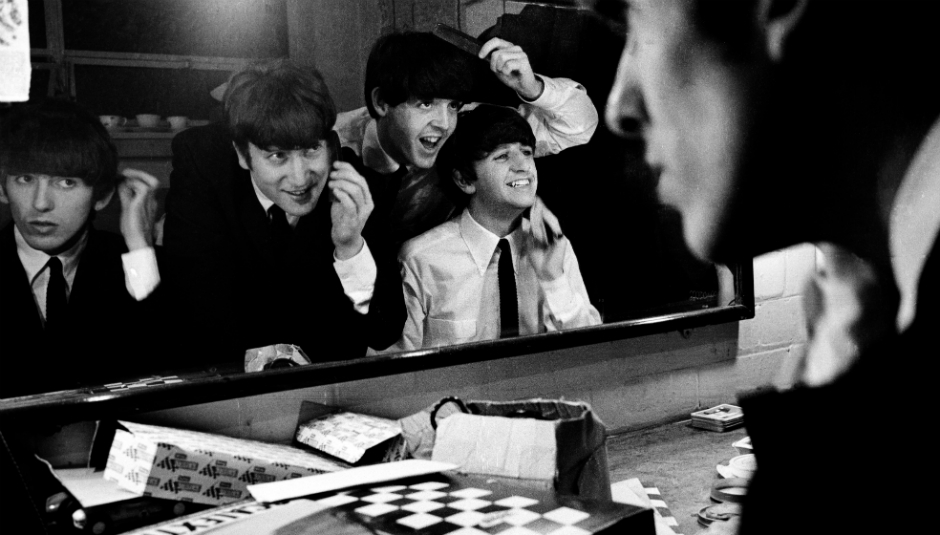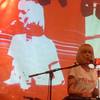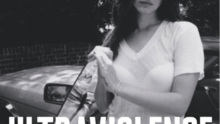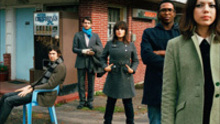Even if you’ve concocted some functioning, makeshift living arrangement under a rock, you’ve likely grasped the fact long ago that four lads from Liverpool managed to change the world in less than a decade. Being unanimously lauded as the most important band in the history of the world, there have been many films about The Beatles to come and go. You probably already know about immortal moments in band’s mythology, like the Ed Sullivan show, the “Paul Is Dead” conspiracy, and the famed trip to India. However, Ron Howard’s The Beatles: Eight Days A Week – The Touring Years promises to be gloriously divergent, stepping aside from the stories we’ve been spoon-fed countless times over the years and concentrating on what the band did best – write and perform music.
The Beatles started as a young group of musicians exploring the music of America that most Americans had stopped caring about. But in symbiotic fashion, the Brits took an American art form and reshaped American culture in the process, at a time in history when Western Civilization was ripe for a loosening of moral standards. But it wasn’t just the Western hemisphere that underwent change, as Ron Howard seeks to instill in the film, but rather the world over.
And that world mourned the loss of George Martin, the esteemed producer for the band, earlier this year. But luckily, the influence of the immortal Beatles’ catalog was never lost on his son Giles Martin, who produced the soundtrack for Eight Days A Week. A child prodigy, Giles has made a name in his own right, acclaimed for his work with acts like Jeff Beck, Kate Bush, and Elvis Costello, not to mention his extensive work with The Beatles’ catalog, collaborating with his father on producing beloved Love soundtrack for the Cirque du Soleil show, producing music for The Beatles: Rock Band video game, and collaborating with Paul McCartney and the late George Harrison. Lucky for us, DiS recently got a chance to sit down with Giles to discuss The Beatles, their music, and his involvement with the film.
DiS: I read that your father didn’t really want you exposed to The Beatles' music. How much truth is in that, and how did you get started in music?
Giles Martin: It wasn’t so much that he didn’t want to expose me to their music, he didn’t want me to pursue music in the first place so that I wouldn’t be compared to him all my life. But over time that changed. I was producing records in England and did an album of classical music that was successful, and from then on was sort of asked to do projects.
How did you get involved with the Cirque du Soleil project?
I wanted to work on the project and essentially had to audition for producing the show. Obviously, I got the job. The Love soundtrack was born out of sheer desperation. I played the music for my father and he thought I went too far, and Paul didn’t think I went far enough.
You’ve said a lot of the music the band created was not a result of the band per se, but the personalities involved.
Yes, they definitely made a certain sound when they were in the studio together. A lot of their sound is just the product of them being in the room recording music together and experimenting instead of fancy technological production techniques.
Although The Beatles were from Liverpool, America definitely had a big impact on them, especially after The Ed Sullivan Show. And even their contemporaries had a huge impact on them, like Bob Dylan for example.
Americans had a huge impact on them before they first stepped foot in America. They essentially took American music and sold it back to them. I was impressed that Bob was their hero. I once saw Frankie Valley And The Four Seasons, and they were talking about mimicking great artists, and that’s what The Beatles did. Songs like ‘Norwegian Wood’ wouldn’t have been made without Bob Dylan’s influence. And, of course, he turned around and made ‘Fourth Time Around’. As they moved on, look at songs like ‘Strawberry Fields’, which wouldn’t have happened without America. I don’t think the influence ever stopped; ‘Back In The USSR’ was heavily inspired by Beach Boys, and John was also a big Phil Spector fan.
They also had a huge effect on America itself. What do you think was the prime reason for this?
There was a lot going on in America at the time, such as Kennedy’s assassination. One reason was that their records were not released like they were in the UK; they had singles that had been backlogged in America, releasing all those records at the same time creates saturation, and that saturation creates mania.
There’s a scene in the film where The Beatles contend with racial segregation when The Gator Bowl in Jacksonville, Florida, were forced to change their segregation laws, something even big fans of the group might not be aware of.
Racial segregation didn’t make sense to them and, as they matured, their stance became more important. They felt it was silly to separate blacks and whites in one room. They had a lot of power, and it was not a press or political move. The Beatles never did anything for effect, it’s just that their general instincts were really good. The world was changing with them; they were great social mediators and had a great knowledge of what was going on at the time.
Do you think as that power grew and they matured they felt more responsibility to respond to social crises?
I don’t think they necessarily felt obliged to respond to social crises, but they did have things to say. They wanted to play music of course, but got tired of being a pop band and thinking they had nothing to say about issues pertaining to the world.
Do you think touring changed them in any way?
If you think of the songs they recorded in their earlier days, like cover versions of popular American songs, they were performing songs that weren't like the songs they were actually writing. Touring certainly made them better musicians, and as they went along they played the music they wanted to play.
Both Ron Howard and you are on record saying that the music re-mastered for the film is better than if you were actually experiencing it live for the first time. Care to explain?
The technology has evolved so much. I worked so much on the audio to make it listenable and presentable. Had you been at the concert you couldn’t hear anything at all, all the audience would’ve heard was music from a tiny PA. So what you hear on screen is way better and crisper.
How did this undertaking stack up with projects like the Love soundtrack or The Beatles: Rock Band video game?
This was a visceral undertaking what it’s like to experience The Beatles in a live setting. The impetus behind Love was to be as artistic and experimental as possible. With this it’s about getting fans to appreciate what went into the live shows. The video game wasn’t really the same kind of project as Love. Part of my goal is to get new fans into The Beatles, people still play the Love soundtrack.
Are you ever afraid of walking in your father’s shadows?
If I was afraid of walking in his shadows I wouldn’t have done Love in the first place. The shadow is pretty big, but the thing that matters is how you respond to it personally and mentally. It doesn’t bother me in the slightest-- it’s not an issue for me. I didn’t think I would be working on Beatles’ projects but here I am.
What’s the motivation?
A lot of it is responsibility. The people involved in these projects trust me to do it; there’s an established trust there. Also, a lot of it is that a lot of people still continue to care about The Beatles, spanning all generations. I don’t need much motivation. Plus there are great new grounds of technology that allow the music to be re-mastered in different ways. You can strip the audio down and make a real difference. It feels great to be a part of projects like these, especially when you get a sense of the fans’ appreciation.
Do you ever get bogged down thinking about sales of the album or anything?
I don’t care about sales of the albums at all, that’s not why I do it. I do it because I love music, and if the people that listen to music respond well that’s great, that’s the goal. I don’t make money from record sales, and neither did my father. George didn’t make much off the records either; he wasn’t as wealthy as people might believe.
Are you working on any other projects right now?
I can’t release the name of the projects right now, but I’m working on a sort of psychedelic project, and I’m working on a few things with the company Sonos that I can’t reveal right now.
The Beatles: Eight Days A Week – The Touring Years is in cinemas nationwide now.























